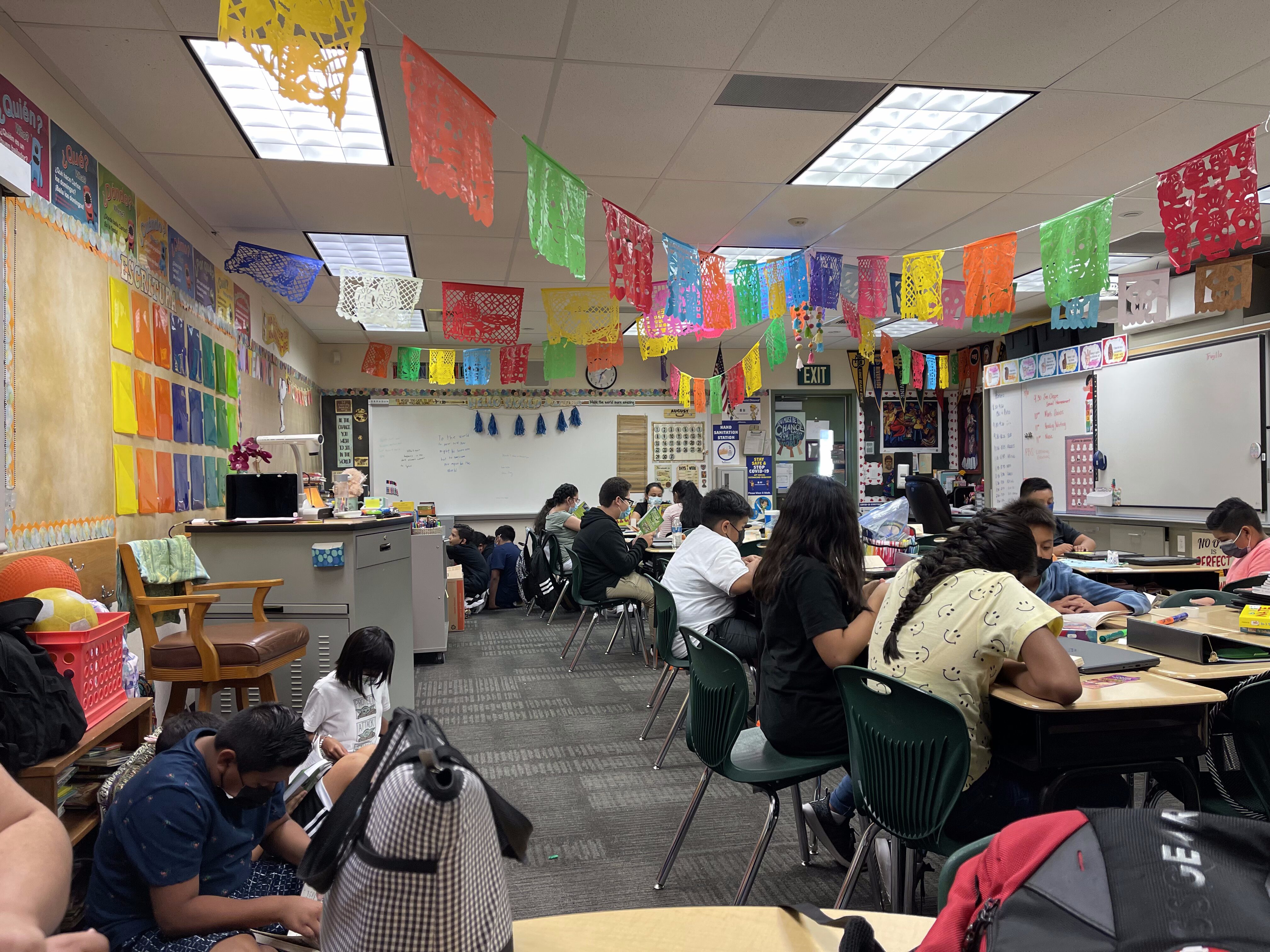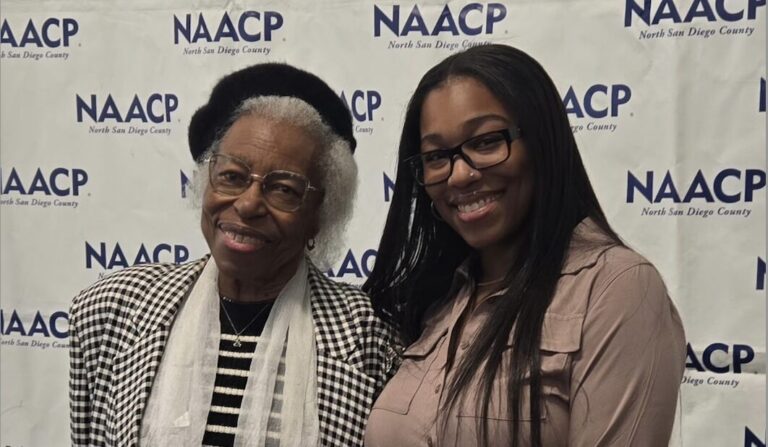By Beatriz Palmer
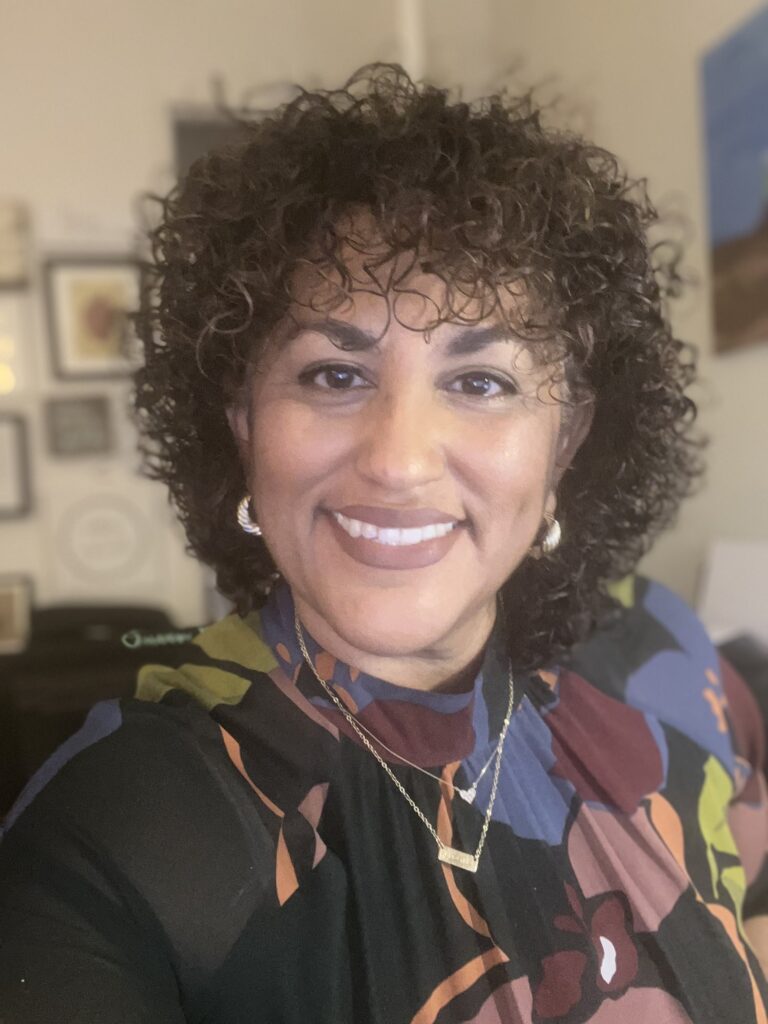
It’s 7:00 p.m. Dinner’s over. The family is winding down, chores are underway, and you’re getting ready for the next day when it happens—the conversation every parent dreads: “Mom, I have to finish the mission project.” Or worse… “I have to start my science project.” You want to scream, but instead you ask, “When is it due?” and then comes the slow-motion answer: “Tomorrow.”
It’s every parent’s nightmare. Deep down, you know these projects were assigned weeks ago. They require planning, research, supplies, and time, none of which you have on a random Tuesday night. So, you say it: “Why are you telling me now?!”
In a moment of despair, you’re off in a rush to “la Walmart,” hoping to find one last tri-fold board. We’ve all been there, and you wonder, “What am I doing wrong?” But then you remind yourself, they are learning just like you are. So, how do we support our kids so they can be successful? Believe it or not, it starts with us.
According to the National Education Association, when families stay involved, kids, no matter the grade, perform better in school, have better attendance, and feel more connected and cared for. This engagement starts with us, in our homes. Parents are their child’s first teachers, and our home culture is their first learning environment.
Growing up, I heard my mom say “¡La tarea!” like a broken record. She often didn’t even know if we had homework, but her reminders let us know she cared. Programs like Migrant Education helped her understand that homework was just as important as washing dishes and doing the chores. As tired as my mom was, she always came through. Huffing and puffing, she’d run to the store or make homemade engrudo (flour-and-water glue). We often didn’t have all the school supplies, but my mom could sharpen a pencil with a kitchen knife better than any electric sharpener.
Five women share their best advice to support students’ academic success.
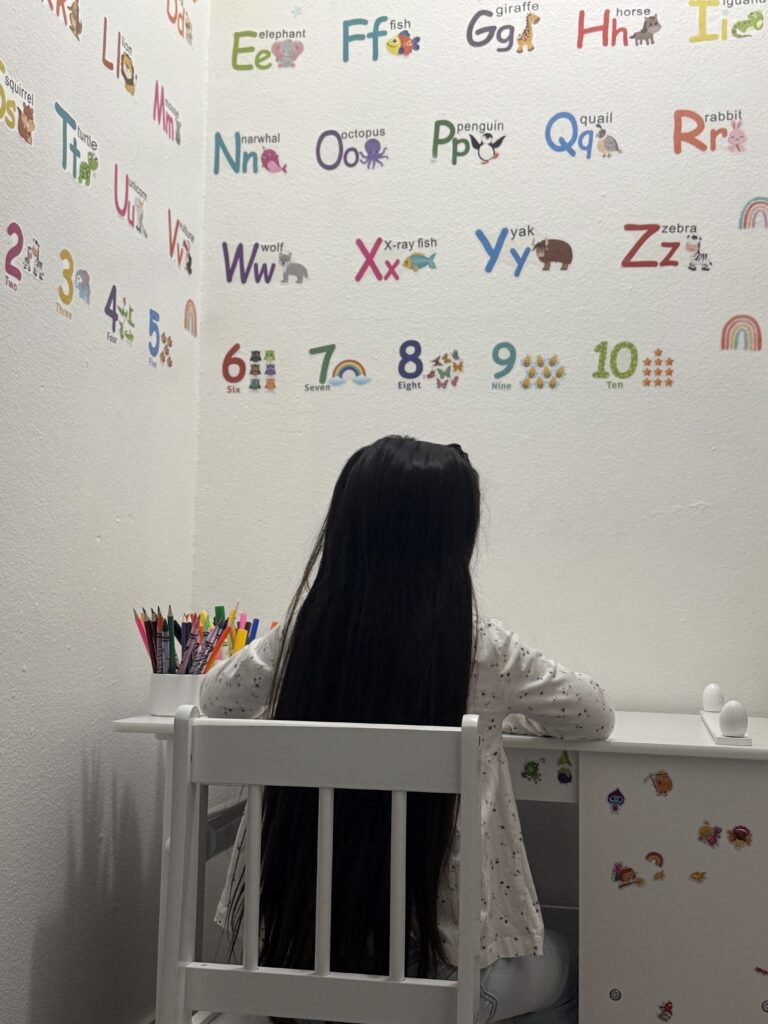
Tina Lozano, a preschool mom and president of her school’s Parent Policy Council, emphasizes the importance of space, routines, and early involvement. “Having a routine, being involved, being a role model, and having a study space at home—all of it matters. I always ask my daughter about her day. We even created a separate space just for her to learn and relax—it really helps.” She volunteers to learn about decision making in her child’s school and to give back to those who are invested in her child’s education.
Susan Arias, a first-generation college graduate and fulltime professional who serves as the chief development officer at a local nonprofit, parents with structure and joy. She shares her top academic tips for other fellow parent colleagues.
- Meet your child where they are. “Every child learns differently. I try to be a cheerleader in their corner.”
- Foster a daily love for reading. “From kinder to third grade, kids learn to read—after that, they read to learn.”
- Make it fun. “Reading can be recipes, signs, scavenger hunts—make it an adventure.”
Teresa Diaz, a first-generation college graduate, fulltime executive assistant, and proud mother of a high schooler in dual-enrollment college courses, shares, “Now that my daughter is taking college classes, I can’t help her much because the college doesn’t keep parents informed—and I respect that. I just remind her daily to do her best.”
She focuses on creating a supportive home environment, ensuring she has the necessary tools, a quiet space to focus, and lots of emotional encouragement. “A grade is temporary. All I ask is that she gives 100%. Some things come easy; others take more support, but what matters most is that she’s kind to herself.”
She continues her own parents’ legacy: “Your only job is to do your homework and prepare for school,” which is what she teaches her daughter.
Yesenia Balcazar, college professional and mom of three, emphasizes the power of staying connected. “As kids grow more independent, keep reminding them how proud you are of their effort and growth. Support also means encouraging them to use the resources available—tutoring, clubs, support centers. And remind them it’s okay to ask for help,” she says. “As parents, we need to stay informed, too. Don’t be afraid to call the school, ask questions, or show up. There are always people who want to help.”
I also had the honor of interviewing an educator who transitioned from a career in social work to teaching; Sra. Sandra A. Trujillo is now a bilingual educator and proud first-gen college graduate. She reminds us, “Students want to learn. It’s a team effort between parents, community and educators.”
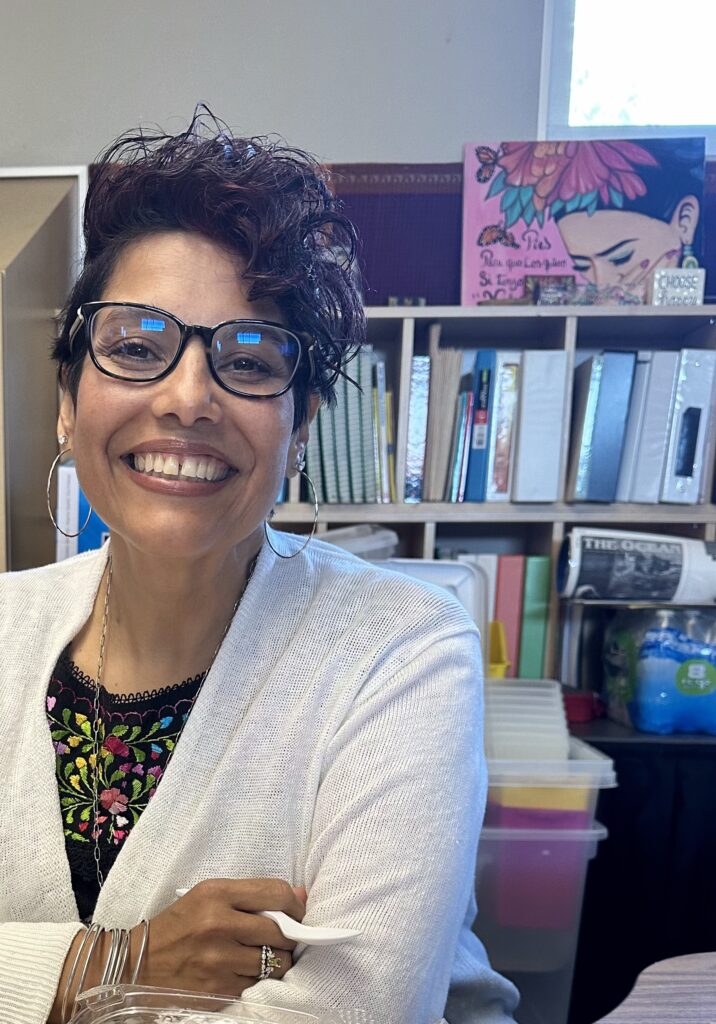
For Sandra, family engagement is rooted in love, literacy, and storytelling. She encourages parents to share their struggles, values, and daily victories. “When parents limit themselves and their stories, they limit their children’s opportunities.” She believes in honoring what Dr. Luis Moll called funds of knowledge—the deep cultural wisdom families hold. When families share their culture with teachers, it helps create responsive instruction and stronger connections.
Her suggestions are simple but powerful.
- Read with your children—even if it’s just talking about the pictures or having your child read to you.
- Get a public library card and make books part of everyday life. The libraries are like a treasure box of lifelong learning and resources for the whole family.
- Let your children witness your perseverance and resilience. I tell my students, “Math was really hard for me, too. But I showed up, didn’t give up, and look, I’m your teacher.”
- Share your culture, your talents, and values with teachers. It helps co-create relevant learning.
Parenting isn’t about being perfect—it’s about showing up, listening, and reminding your child that you believe in them, saying “mijo/a, échacle ganas!” [Do your best!].
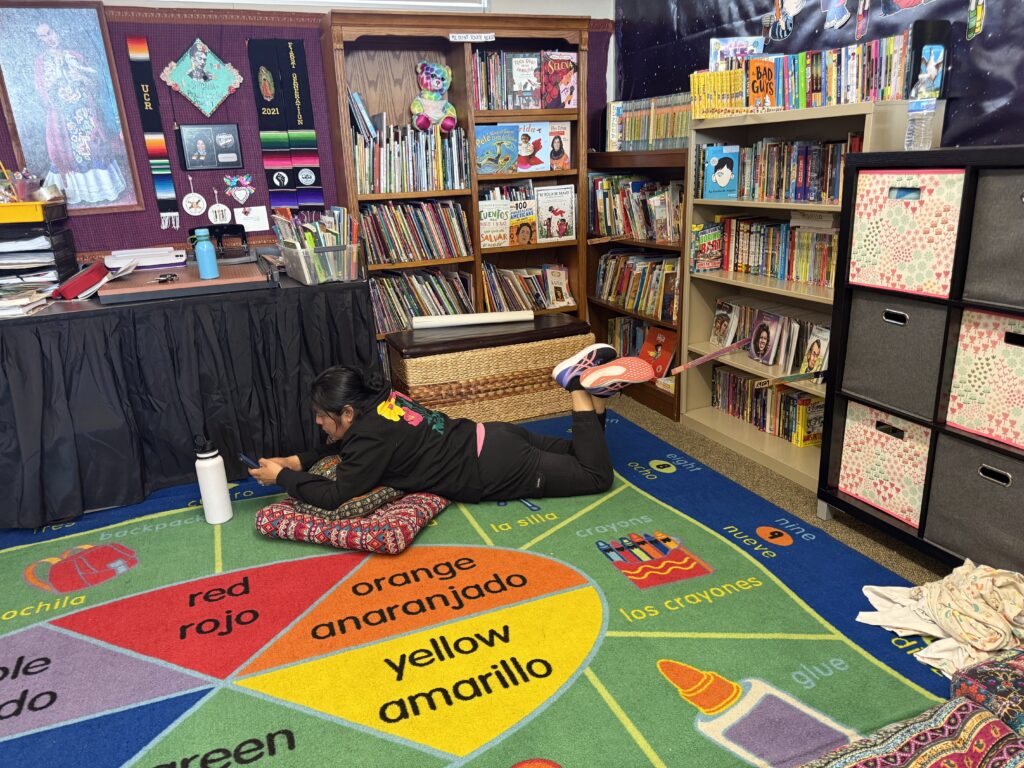
How to Support Your Kids’ Success in School
- Attend back-to-school nights.
- Enroll in your child’s communication media, follow the school’s social media accounts, check your emails regularly.
- Read your teacher’s newsletter.
- Visit your school’s website.
- Donate supplies or join the PTA.
- Ask about ELAC or other parent groups.
- Learn what “community schools” offer—many provide food, wellness, or academic resources.
- Meet the school principal, the counselor, and your child’s teacher.
- Go to the “coffee with principals”.
- Send thank you notes to your teacher and principal.
- Ask for an interpreter.
- Don’t miss the school conference days.
- Read your child’s report card and progress report.
- Make a commitment to go to at least one school board meeting.
- Ask open-ended questions about their day. Then, put the cell phone down and be ready to listen.
- When they come to you frustrated, teach them how to advocate for themselves—but don’t hesitate to step in when needed.
- Yes, homework matters, but so does emotional presence. At the end of the day, our children don’t just need help with the project, they need to know we believe in them.
- When they tell you about the bully at school, listen, and then talk to the school counselor or your child’s teacher.
- Make sure they get plenty of rest, are well nourished, and have built lots of memories and fun along the way.
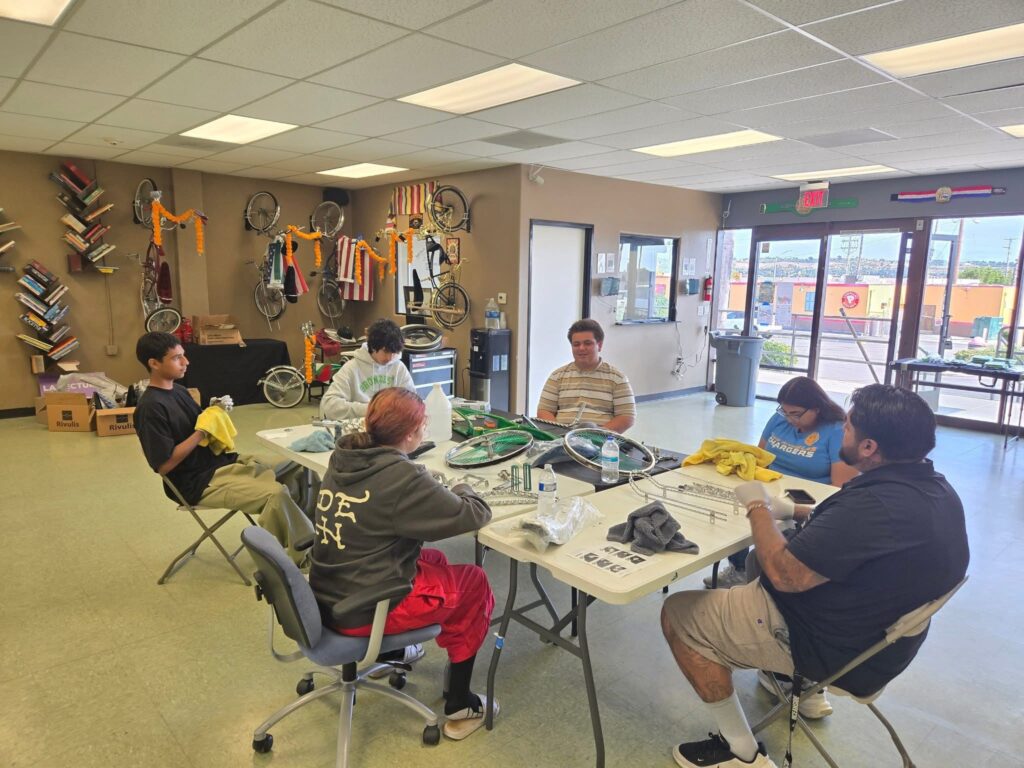
Oscarín Ortega, the founder and CEO of Lived Experiences, shares that it’s important to find good mentors for children or even become a mentor for students in need. He also reminds parents never to give up on youth, no matter what these youth may be struggling with.
His organization recently opened a community space with free laundry services, a food pantry, youth development mentorship, and a safe family space to grow and learn together. If you need help with your child’s school journey, stop by to see him and his team. 610 N. Redondo Dr., Suite A, Oceanside.
If your child is struggling, ask questions, and don’t be afraid to seek help. Ask about evaluations; talk to your school counselor, school psychologist, or your own pediatrician, and don’t take “no” for an answer. I wish I had. When my son was in high school, I noticed he was struggling, but I didn’t think about getting him tested for learning disabilities until he was in 11th grade. My Juanito wasn’t lazy—he was brilliant, creative, excellent at math, a good friend, and very resourceful.
We later discovered he had a visual and auditory processing disorder—he just learned differently and needed a little extra support. Suddenly, everything made sense. Even though he struggled in some areas like writing, his comprehension, critical thinking, and math skills were advanced. Today, he leads multi-million-dollar construction projects, designed his own kitchen, and installed a pool in his back yard. I’m proud of him beyond words, and I’ve forgiven myself for not acting sooner. And guess what? I missed the mark with my daughter too, but she got the help she needed in college and is thriving. She’ll soon be a school counselor! So, I share this now: It’s okay to ask for help. Getting your child evaluated doesn’t mean you failed. It means you saw something, listened, and acted on their behalf. That’s advocacy!
If you’re struggling, remember Sra. Trujillo’s words of wisdom: “Even on the hardest days—just getting to school is an accomplishment worth celebrating. You got this, and ¡échale ganas!

